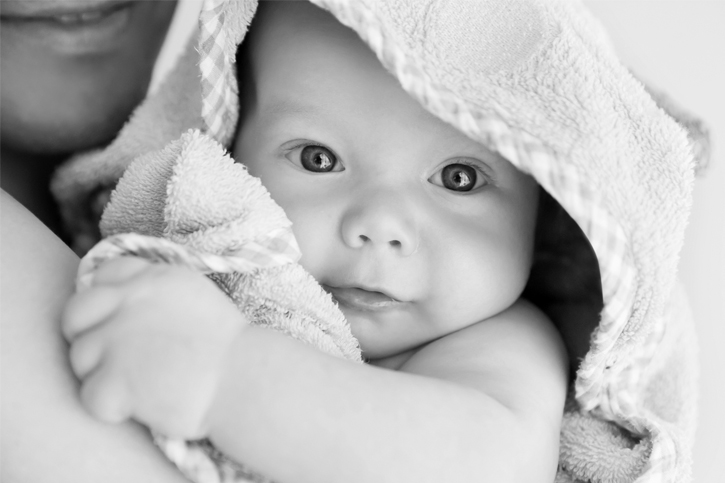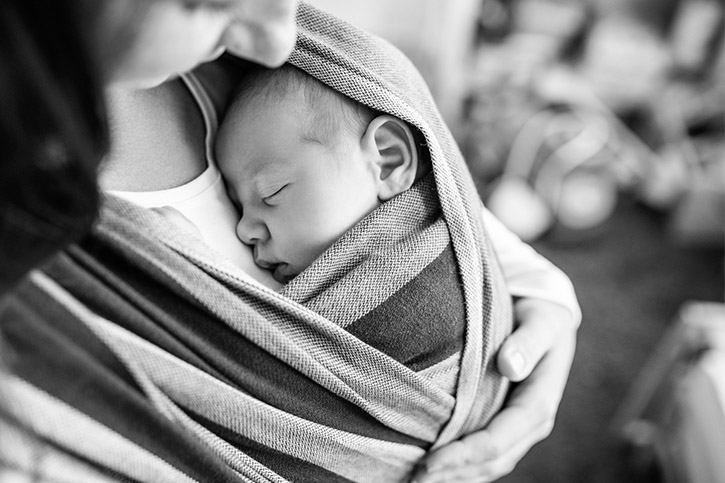After nine months of anticipation, planning, learning and pushing, you’ve done something absolutely incredible: given birth. It’s one of the most amazing things you can do in your life and will be unlike anything else you will ever experience. But what’s next?
The postpartum period (or postnatal period) will be just as new and exciting as your pregnancy. Here are 7 things you can expect to experience.
Of course, you’re facing the massive task of raising a child, but what can you expect right away? The initial postpartum period (or postnatal period) of six weeks is what is sometimes known as the puerperium. During this time, your body will recover and return to normal, but you will experience a range of new things too.
Hormones are still bouncing around your body, and the feeling after all that waiting may not be what you had anticipated. To help you prepare, let’s take a look at a few things you can expect in the postpartum period.
Baby Blues and Postpartum Depression
When you first take your baby home, it can feel like a bit of an anticlimax, to the point that you may feel a little bit sad. This can be quite confusing, particularly if you haven’t experienced it before. However, ‘baby blues’ is extremely common, affecting roughly 80% of all mums. It is closely linked with the hormones that are still racing around your body. It will pass after a few weeks. Talk to your partner, friends or family about it – they will all tell you it’s very normal.
If you are feeling sad or anxious constantly, this may be more than just baby blues. This may be postpartum depression, which is also quite common. It is also more serious, and it important that you talk to your doctor if you feel depressed for days on end. Symptoms include extreme sadness, crying, ongoing anxiety, changes in eating patterns or sleep, low energy, feeling inadequate as a mother, hopelessness or feeling alone. There is always help at hand!
Uterus Shrinking and Abdominal Pain
During your pregnancy, your uterus will have stretched quite a lot. As it shrinks after birth you will feel stabbing pains in your belly. These are known as “afterpains”, and can be dull or acute. This will ease over the first few weeks. You can help by applying a hot water bottle to your abdomen, relaxing and drinking plenty of fluids. Afterpains are common during breastfeeding too as this stimulates the release of oxytocin, which causes the uterus to contract.
Sore Breasts
Having a child can be quite a strain on your breasts. Even from the first week of pregnancy they can begin to feel sore and tender, and this will continue on right until your baby stops breastfeeding.
The first few times breastfeeding may feel quite strange, and your breasts and nipples will likely feel quite sore for the first few days. If this lasts longer than a week, there may be an issue with the way your baby is feeding. You can try different positions and find what works best for you and your baby.
Even if your baby is feeding properly, it is still likely you will experience some soreness, so be prepared for this. If pain is severe, consult a lactation specialist. For mild cracking of the skin, there are a number of over-the-counter treatments available.
Your Vagina and Perineum
As you very well know, giving birth places an enormous amount of strain on your vagina and perineum (the area between your vagina and anus). This will be sore and swollen and will take some time to heal. It will get better soon though!
While you recover try sitting on an ice-pack to help relieve pain. If it is painful cleaning the area after using the toilet, try rinsing it down with warm water or taking a shower. For the first few weeks, keep your legs closed as much as possible and avoid any excessive straining. Rest and recover! Your obstetrician will assess you during your postnatal appointment, which is usually around the 6-week mark. Keep the whole area as clean as possible, and as much as you might be keen to see how it’s progressing, try not to touch.
You can also expect some bleeding and discharge from the vagina after giving birth. This is completely normal. It’s called lochia and every new mum experiences it (even if you had a caesarean). This can last up to six weeks.
Be sure to buy plenty of maternity pads before your baby is born. These will come in handy here! Don’t use tampons, as they can introduce bacteria into your vagina and healing uterus. And avoid strenuous activity while you recover.
Haemorrhoids and Constipation
On top of your vagina being sore and tender, haemorrhoids are quite common, which is the last thing you need after giving birth. There are many over-the-counter treatments, so give one a try.
Constipation is also common, particularly in the first week after childbirth. This may be caused by the medication or anaesthetic you were given in hospital, or you may simply be reluctant to go to the bathroom because of the above (never underestimate the power of the mind). Drink plenty of fluids and eat food high in dietary fibre. This will help.
Losing Weight
The weight loss process after giving birth is a long one for every new mum. After giving birth, you will obviously shed the weight of your baby. But this about the extent of it. The rest of the experience is just like any other weight loss process.
It will take time, so don’t get frustrated. Eat well and, when you have recovered, start exercising like you would if you were trying to stay fit normally. Do this with your baby – it’s a great way to bond!
Menstruation
While you were pregnant, you will have had a long break from your period. Following birth, you will have a few more weeks off before it returns.
One of the biggest factors that will affect how soon it is until you start menstruating again will be how you’re progressing with breastfeeding. The hormone responsible for your milk production actually stops ovulation. So if you breastfeed, it may take months before your period returns. If you mix up formula feeding and breastfeeding, it may take even less time. If, for some reason, you aren’t breastfeeding at all it may just take a few weeks before it returns.
It may take some time for your hormones to settle, so your periods may be a little irregular once they start again. This is completely normal!
If you have any questions about giving birth or would like to book an appointment, please don’t hesitate to get in touch.
Dr Brown is one of the most trusted obstetricians in Sydney and will be thrilled to give you complete and compassionate care in every way possible.

